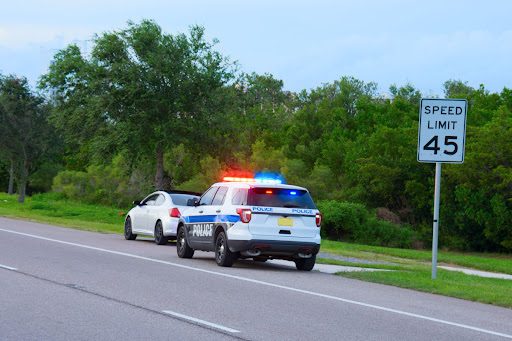“What is implied consent?” It’s a question many New Jersey drivers may have asked themselves, especially after being pulled over for a suspected DUI/DWI. Implied Consent Law in New Jersey means an individual has given “implied consent” to any breathalyzer or chemical tests requested by a police officer if pulled over on a public road. This consent is given when one applies for and receives a driver’s license in the Garden State.
Implied consent is an important part of traffic law designed to protect the public from individuals who may be under the influence while operating a motor vehicle. Although Implied Consent Laws in NJ allow a police officer to request you test for drugs or alcohol when suspected of DUI/DWI, it does not mean you have to legally consent to a test, but doing so will come at a cost. Let’s review some aspects of Implied Consent Law in New Jersey.
What Happens If I Refuse a Breathalyzer?
If you refuse to take a breathalyzer test, it is classified as a separate offense from the DUI/DWI. Refusing the test will result in additional penalties, including a refusal charge. A driver can be fined up to $500.00, face an enforcement charge, a motor vehicle surcharge, have an ignition interlock installed on the vehicle, and be required to turn in their license for a mandatory suspension of up to one year for a first offense refusal charge.
A secondary refusal charge will result in even stiffer penalties, including a fine of up to $1000.00, a license suspension of two years, the installation of an ignition interlocking device for up to 3 years on their vehicle, and several other fines and surcharges levied by New Jersey’s Division of Motor Vehicles.
The third offense for refusing a breathalyzer results in even stiffer penalties. These can include additional fines of up to $1000.00, participation in an alcohol rehabilitation program, a driver’s license suspension of up to 10 years, and an ignition interlocking device installed on the driver’s vehicle for an additional 3 years.
The Prosecutor Must Prove the Following
It is important to note that when a driver refuses to submit to a breathalyzer or chemical test, the police officer that pulled them over must read, in full, a standard statement upon their refusal. Additionally, suppose the driver remains silent or refuses to comply with the police officer. In that case, an additional statement must be read, and the officer must ask one final time for you to submit a sample of your breath.
In court, the state must prove that these statements were read to you when you refused to perform the breathalyzer. Therefore, failure to do so could significantly impact the ability of the prosecution to prove their case.
What the Defense Must Prove
There are limited defenses for those that refuse to comply with the Implied Consent Law in New Jersey. A defense attorney may question whether or not the police had probable cause to stop the driver. They can also challenge the police officer on whether or not the previously mentioned statements were read to you in full upon your refusal to submit to a breathalyzer.
Hire the Experienced Attorneys at Shugar Law Office
If you’re facing charges for refusing to take a breathalyzer test or are seeking a DWI lawyer in NJ, contact the team at Shugar Law Office. We offer a range of legal services, including being a premier criminal defense attorney. Contact us today to learn more or to schedule your consultation.


